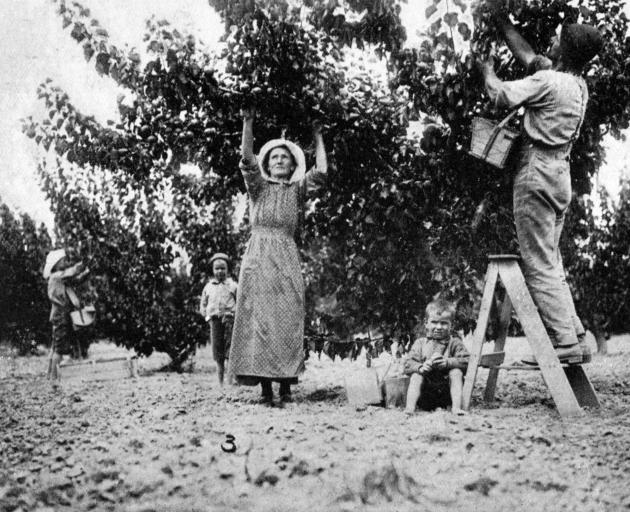
During his two years' imprisonment he studied German, in order to travel unsuspected. He made an earlier but unsuccessful attempt to escape, for which he was punished. Many of those in the camp knew that it was our intention to make a new attempt, but they guarded our secret carefully.
Choate raffled an old fiddle in camp, thereby raising money to pay our expenses.
''It was impossible to wear camp clothes without detection, therefore we secured the baggiest pairs of military trousers and took out the stripes from the sides, and when sewn up the garments looked like ordinary workmen's trousers. We removed the distinguishing marks from our tunics, and we grew moustaches of the approved German pattern. We dodged the sentries at night time, and got clear of the camp. ''
Choate's knowledge of German was most useful. We noticed a policeman watching us suspiciously, and Choate asked him the way to the station. The policeman sternly asked: 'Who are you?' Choate replied that we were Belgian workmen. The policeman said: 'Where are you going?' Choate replied: 'Going home.' Choate's frankness disarmed the policeman, who indicated the direction.
''Train travelling was difficult, but various devices allayed suspicions about us. We feigned sleep when closely watched. Choate's disguise was perfect. He addressed me in colloquial German, to which I nodded or responded in monosyllables. We brought a little food with us from camp, therefore it was unnecessary to visit the restaurants, where the absence of bread and other cards would promptly have led to our detection. Finally we reached Holland.''
Speeding motorists
In our report of the meeting of the Otago Motor Club on Tuesday evening Mr Wilson stated that the roads were now infested with road hogs, and the abolishing of speed limits would make matters much worse than at present.
Mr WIlson, who is chairman of the Roads Committee, in conversation with a reporter, stated that the way a large number of motorists indulged in the craze for speed was scandalous. Gordon Bennett's times were frequently made, and from 30 to 40 miles per hour were of hourly occurrence on every road.
Owing to the war, all roads were deteriorating, and consequently speeds should be reduced to 20 miles an hour, and from 15 to 12 miles an hour round corners.
Footstool climbed
Mr S. Turner, one of the leading spirits among alpine climbers, though he has not so far been successful in his lonehand attempt on Mount Cook, has added to his list of honours the first unaided ascent of the Footstool.
The Footstool, which adjoins Mount Sefton, is 9073ft in height. In Mr Turner's recent effort to climb Mount Cook from the Tasman side without a guide, he reached a height of 11,700ft.
Maori roll
The Southern Maori electoral roll (says the Christchurch Press) contains 892 names of male and female electors, with 105 upon a supplementary list.
The list sets out the names with tribal exaction, address, and sex.
- ODT, 14.2.1918.
COPIES OF PICTURE AVAILABLE FROM ODT FRONT OFFICE, LOWER STUART ST, OR WWW.OTAGOIMAGES.CO.NZ












